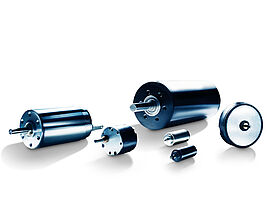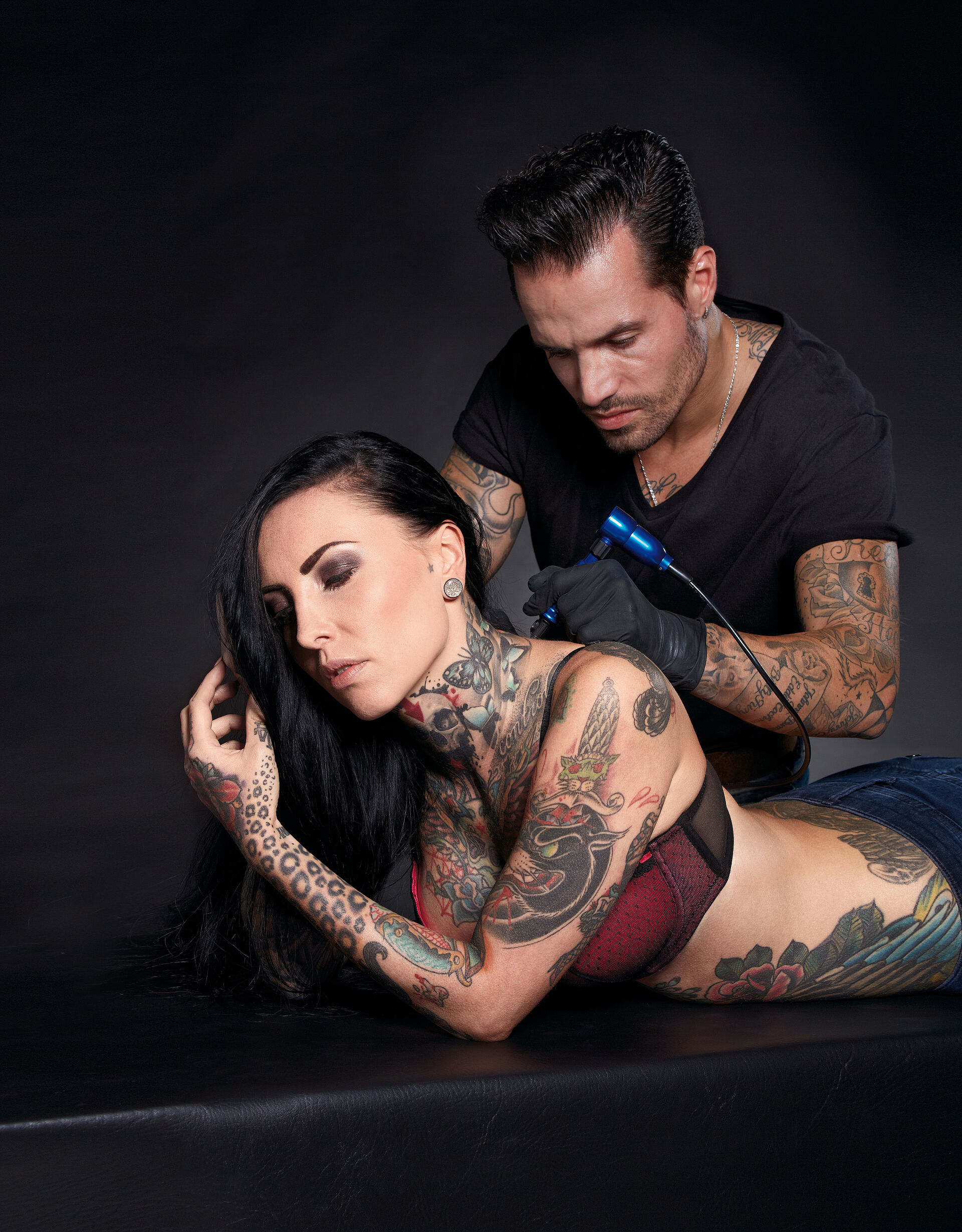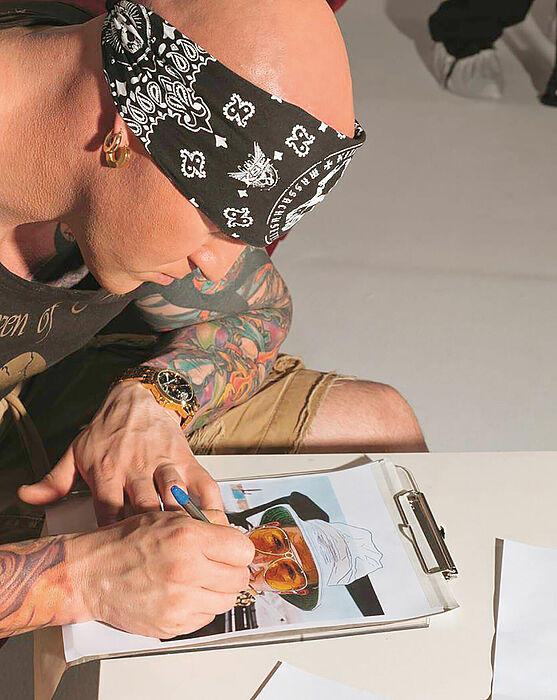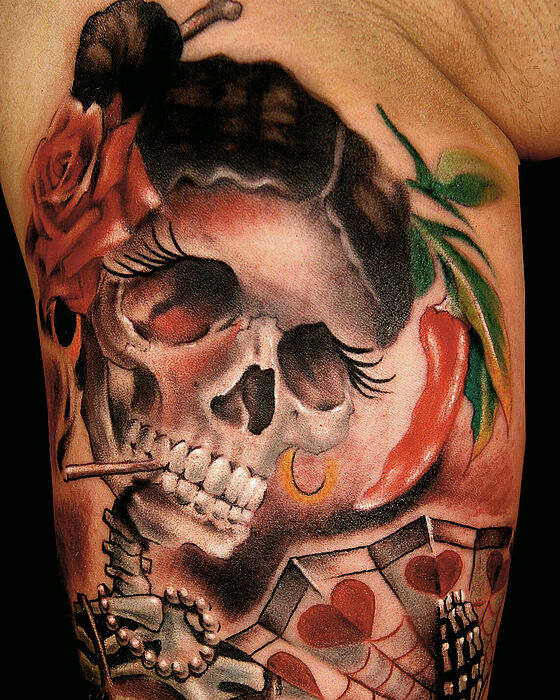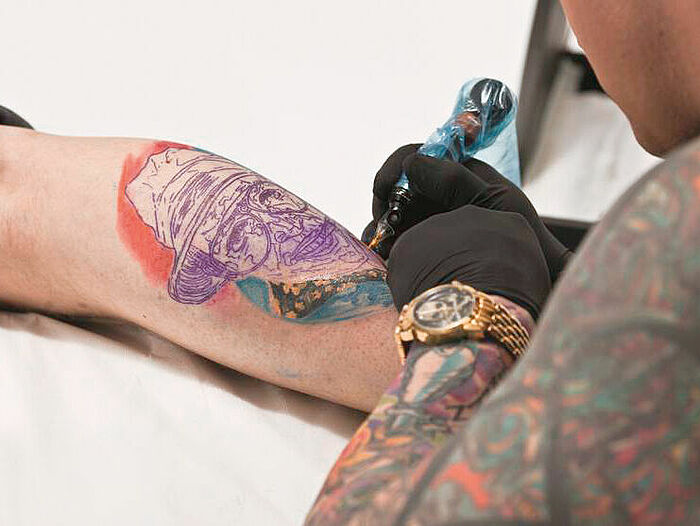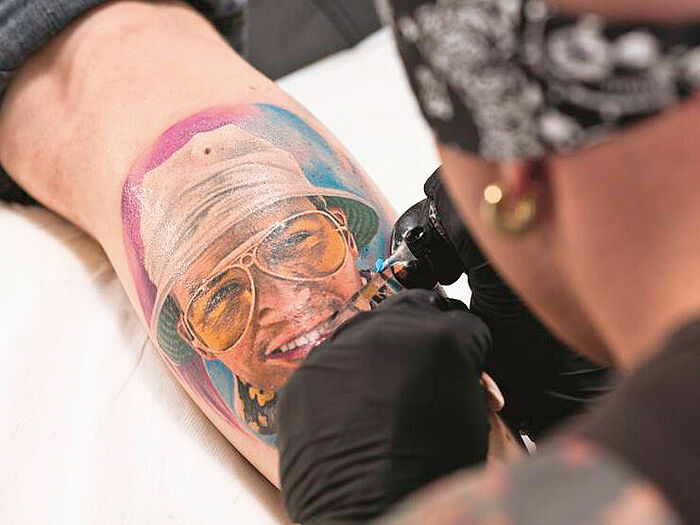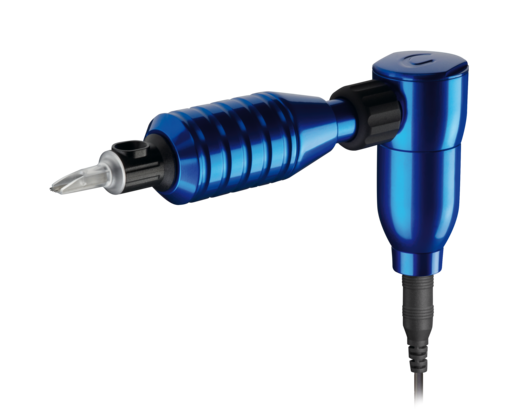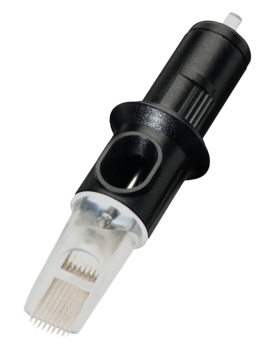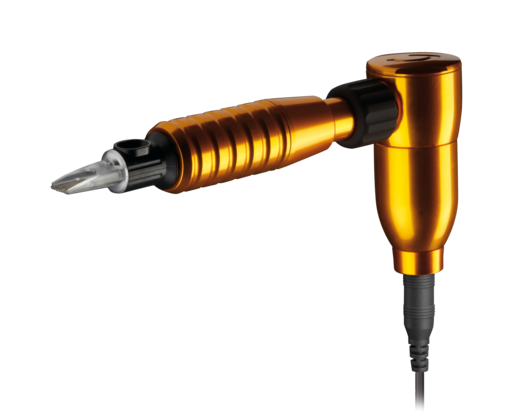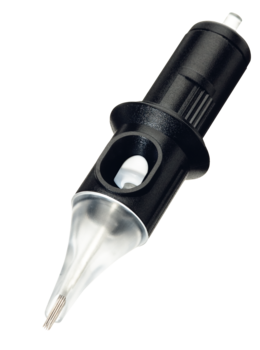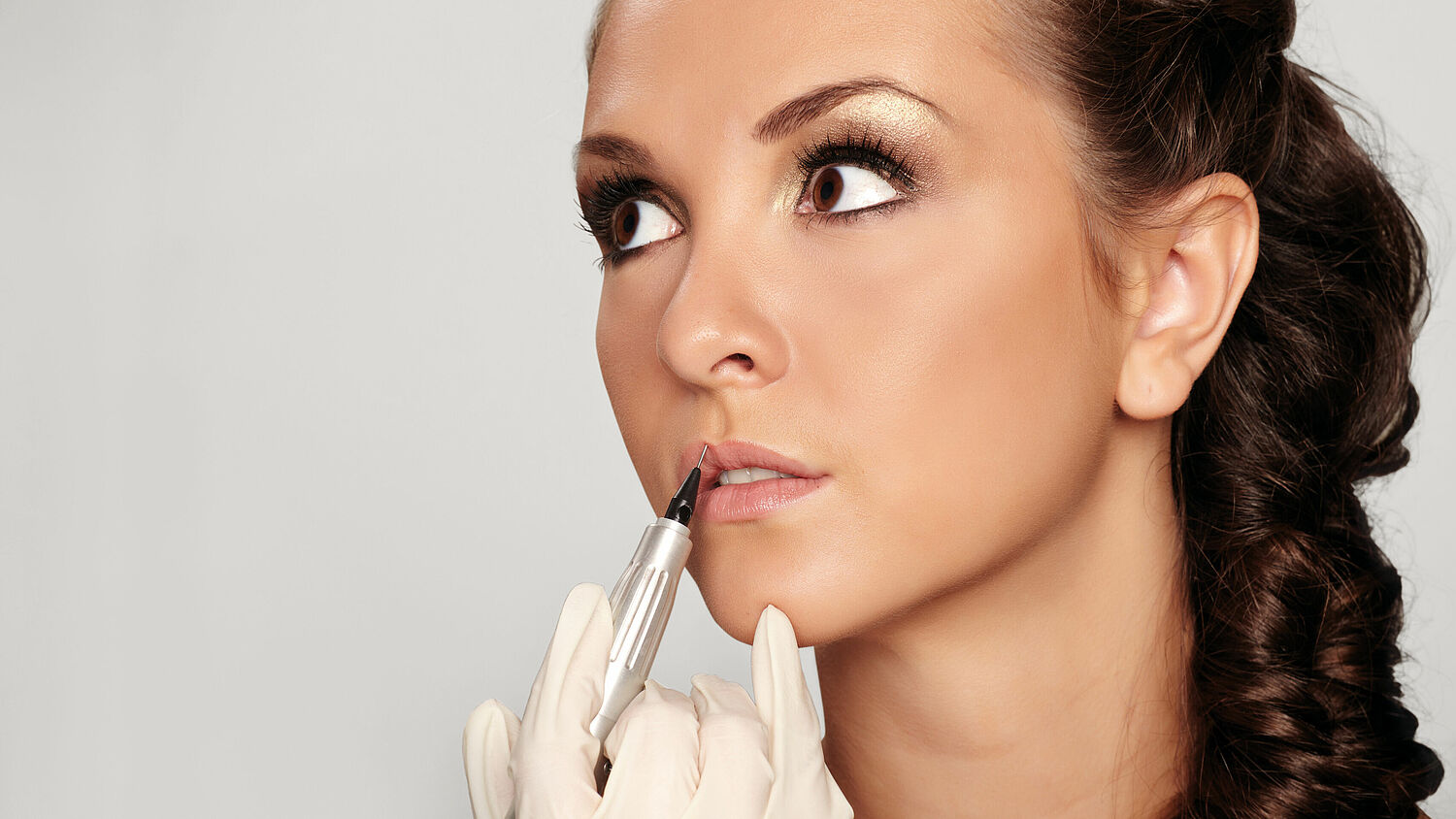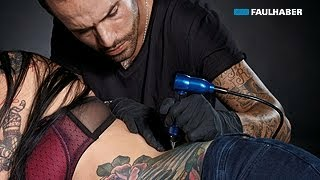Whereas just a few years ago tattoos were primarily popular among motorcyclists, in the meantime it is completely commonplace that 16-year-olds ask to have a permanent body art piece for their birthday. The spectrum ranges from small dolphins on the ankle to fearsome skulls and crossbones, but also very personalised adornments: actress Angelina Jolie, for example, has a Buddhist prayer on her back.
Body art with a historic background.
Actually, the application of figures to the skin has a tradition reaching back thousands of years in a multitude of cultures. With needles or other sharp implements, people have always sought to permanently apply colour pigments to the human body. For instance, numerous tattoos were found on the roughly 5,300 year-old Stone Age man "Ötzi". Tattoos have also been identified by archaeologists on the 4,000 year-old mummy of the Egyptian priestess Amunet. The archaic methods used for this tattooing were exceptionally painful, as the designs were carved into the skin using wooden implements, human bones, sharks' teeth or thorns. Nowadays, the procedures are much less painful, more hygienic and of the highest technical standards – especially if brushed dc motors from FAULHABER are applied in the tattoo machines.
Requirements
Tattoo professionals consider themselves to be artists; accordingly, their tattoo devices are the equipment with which they realise their art. They are occupied for many hours, without a break, when creating a large-scale tattoo. Modern tattoo machines are therefore characterised by a low intrinsic weight and the flexibility to adapt to individual movements. What is also desirable for the work procedures is that the device operates quietly and with low-vibration, and it fits the hand well.
At first glance, a tattoo machine functions similarly to a sewing machine: one or more needles oscillate and thereby puncture the skin. The pigment is injected at the desired part of the body at a rate of several thousand pricks per minute. A seasoned tattoo artist neither punctures the skin too shallow nor too deep; ideally, he or she gets to the middle layer of skin. Because, if it is applied too superficially, the tattoo will not be permanent; if the punctures go too deep there will be bleeding, which would influence the dispersion of the injected pigment.
The underlying technology
Essentially, tattoo artists can choose between two types of machines: coil-based machines and rotary machines. Coil-based machines belong to the older generation, and function somewhat like an old-fashioned doorbell in which a clapper strikes a little bell repeatedly in rapid sequence. These classic tattoo machines work with alternating current which constantly reverses the polarity of the magnetic coil, in turn moving the needle. This technology is currently used with increasing frequency in tattoo studios. However, the newest generation tattoo machines work with high-performance electric motors. With them, the needle is no longer actuated by means of a coil but instead by a motor. The advantages are that these so-called rotary machines are especially smooth running and significantly quieter than the coil-based machines, and – thanks to their low intrinsic weight – fit much better in the hand. In these angular devices, the motor is located in a cross-piece and drives an eccentric mechanism in order to linearly oscillate the injection needle. This more likely requires thicker and shorter brushed dc motors. These are available in FAULHABER's product range in various versions and technologies. Depending on the model, the drives just barely weigh 20 to 60 grammes, yet can nonetheless deliver the necessary performance – thanks to their high efficiency factors of up to 86 percent.
Enduring, but not everlasting
Permanent make-up was developed from tattooing and refers to an enduring outlining of features, such as eyes or lips, by means of micro-fine colour pigments. In contrast to a tattoo, permanent make-up is not irreversible as modern technology makes it possible to colour just the uppermost layer of skin. The result lasts about five years long. The professionally and enduringly applied cosmetic art is viewed with increasing interest in our world, which places a great deal of value on beauty. Beyond the aesthetic aspects, permanent make-up can also cover up small imperfections and scars.
Precision in ballpoint pen format
Like the tattoo artists, cosmeticians who apply permanent make-up also benefit from having a light, handy device that they can delicately operate. The colour pigments are injected in the surface of the skin with an oscillating needle, whereby – in contrast to tattooing – only the uppermost layers of skin are treated and the underlying tissue remains unscathed. The devices that are employed must meet the highest demands on technology and design, and moreover work precisely and reliably. As the most sensitive parts of the body – such as the eyes, for instance – are being treated, extremely smooth running is particularly necessary for this. Brushed dc motors made by FAULHABER can also be successfully utilised in devices for applying permanent make-up. Because the devices are elongated and ideally have a format somewhat resembling a ballpoint pen, the slender models of the brushed dc motors have proven themselves.
Unique solutions
Based on their technology, FAULHABER brushed dc motors are distinguished by a high efficiency, which is not only an advantage for battery-operated devices. As a result of the high power density, more compact, lighter drive solutions are possible, e.g. with a diameter of 13 millimetres for permanent make-up handpieces. FAULHABER models are differentiated from conventional brushed DC motors by the rotor. It is not wound around an iron core, but instead consists of a copper coil manufactured with a self-supporting, skew-wound design. This provides for low rotor weights, very smooth-running operation and a highly dynamic cogging-free action without the usual magnetic hysteresis losses associated with other technologies.
More than just technology
Of course, FAULHABER has more to offer than just technology. Apart from our drive systems, many customers appreciate our comprehensive product service, such as that customer-specific modifications can be made to the shaft or the connections and plug connectors, even for relatively small quantities. FAULHABER also scores when it comes to accessories: many components are combinable without any problems, which is not only important to the manufacturers of tattoo machines.
Products
